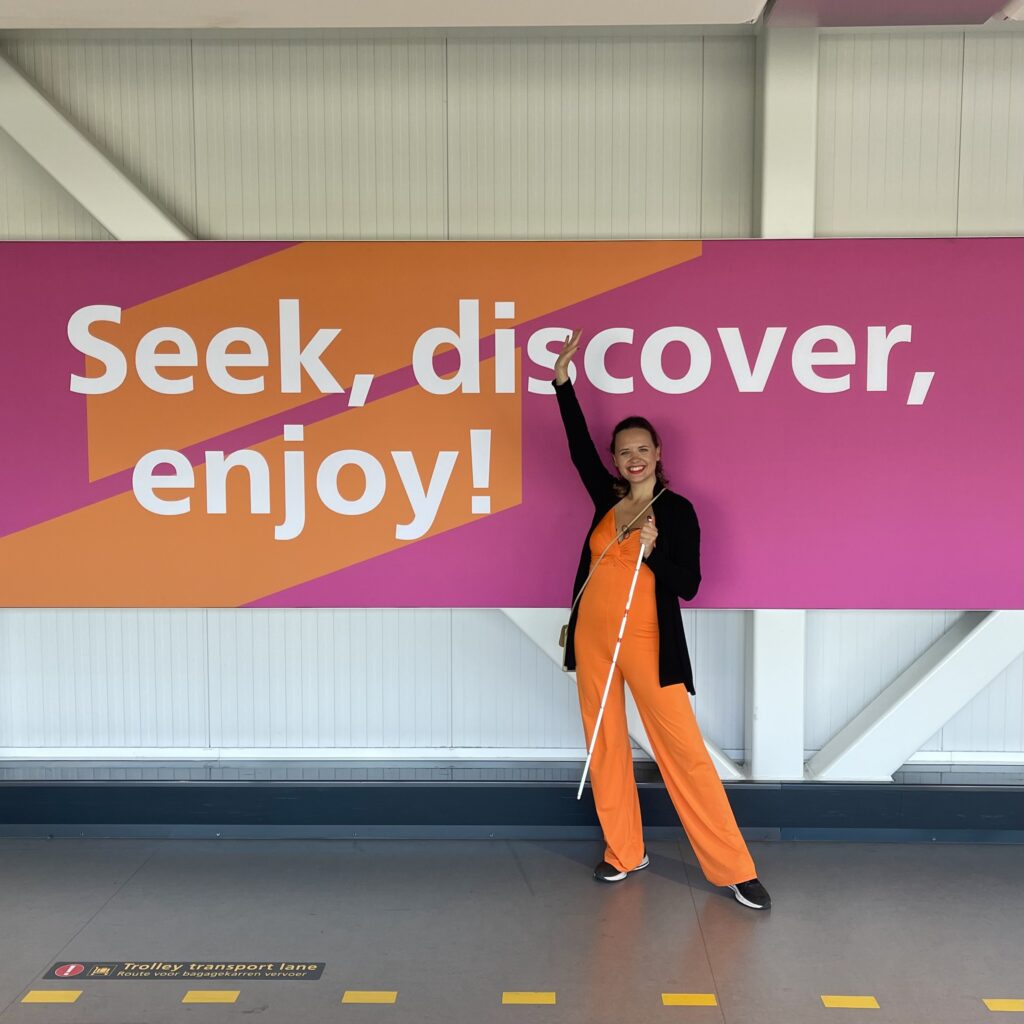(VIP = visually impaired person, or very important… as you wish  )
)
Traveling alone can be challenging, let alone with a disability! Destinations can vary significantly in terms of accessibility, inclusivity culture and local levels of English proficiency. Below are some guidelines I use when I plan my (solo) travels to ensure they are both adventurous and safe!
I will be posting such (country-specific) articles on a more regular basis in the hope it will stimulate more VIPs to travel and gently force the industry to become more accessible! I hope you will find them useful!
🌞 Sun protection 🌞
Maximally protect your eyes! No matter the sun intensity, I always bring at least 2 pairs of caps/hats and sunglasses. I recommend buying darker caps as studies have shown that darker colors are more effective at protecting us from the sun (and bonus, they don’t get dirty as quickly!). Additionally, I have medical filter lenses from the brand Essilor in my sunglasses that filter out the most damaging UV rays and augment the color contrast (I use RT3 & RT4). There are several other brands that produce these glasses, such as Zeiss and CPF, varying in shade, color and material. I would strongly advise asking your optometrist for more information.
🧭 Internet Access & Navigation 🧭
Buy a local (e)SIM! I don’t know about you, but I am extremely dependent on my Map apps to guide me to locations. I also feel safer knowing I have internet access. Though I usually buy a local SIM card in countries where my European plan doesn’t work, I recently read there now exist apps on which you can buy ‘eSims’ with international data. Examples include FlexiRoam and HolaFly. If you wish to delve a little deeper, I suggest reading this comparison page. Do keep in mind that in some countries it is still cheaper to buy a tangible SIM card.
Aside from (Google/Apple) maps, my favorite app to get around is Moovit. Oh, this app saves me so much energy! If you allow the app to send you notifications, your phone will start vibrating when you are approaching your destination (such as a bus stop). This function truly allows you to enjoy your journey without continuously having to check where you are. The app can also tell you exactly when your means of transport is approaching in case you cannot read the number on the vehicle itself (one of my personal biggest frustrations).
🗣️ Local Language 🗣️
Learn some basic phrases of the local language! Aside from it being fun, it comes in very handy when you need help in an area where locals do not speak good English (or another language you know). I find myself often asking for directions and assistance at bus/train stations and restaurants without having the time to type sentences into translating apps. Moreover, it’s a great way to connect to the local community, which will assuredly enrich your travel experience.
When I travel alone for a longer period of time, I definitely prefer going to countries where they speak good levels of English or Spanish.
A few great language-learning apps include DuoLingo (who hasn’t heard its ‘pings’ in public) Babbel and Monally. I am eager to hear what languages you would love to learn or are learning in the comments! ☺
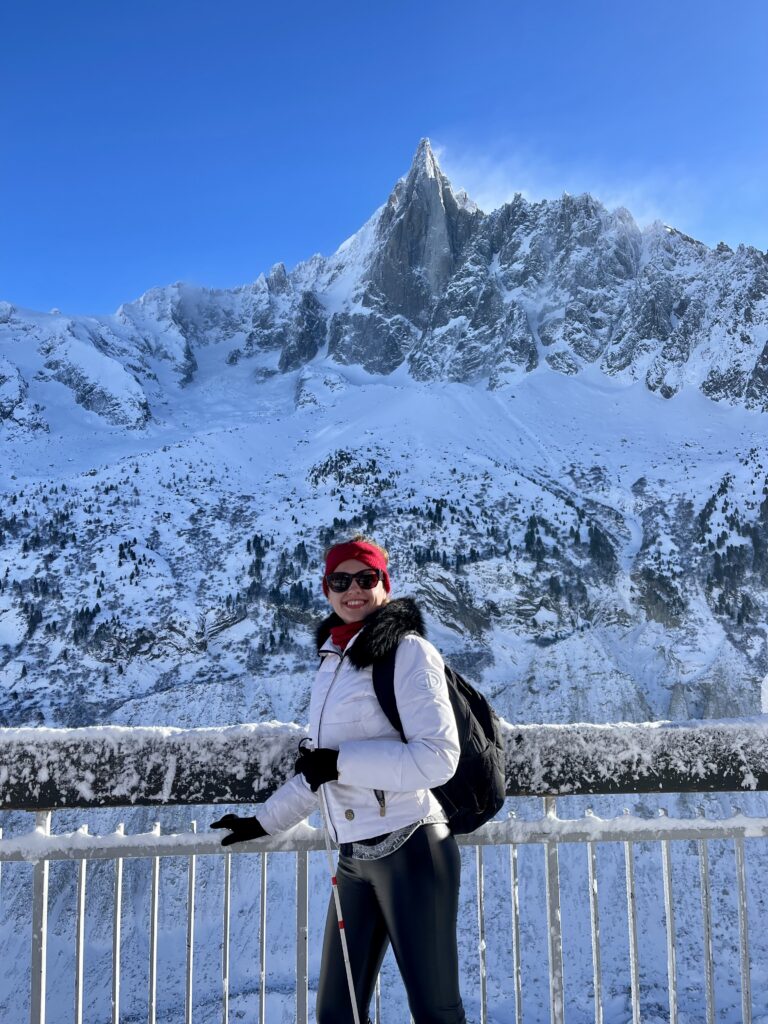
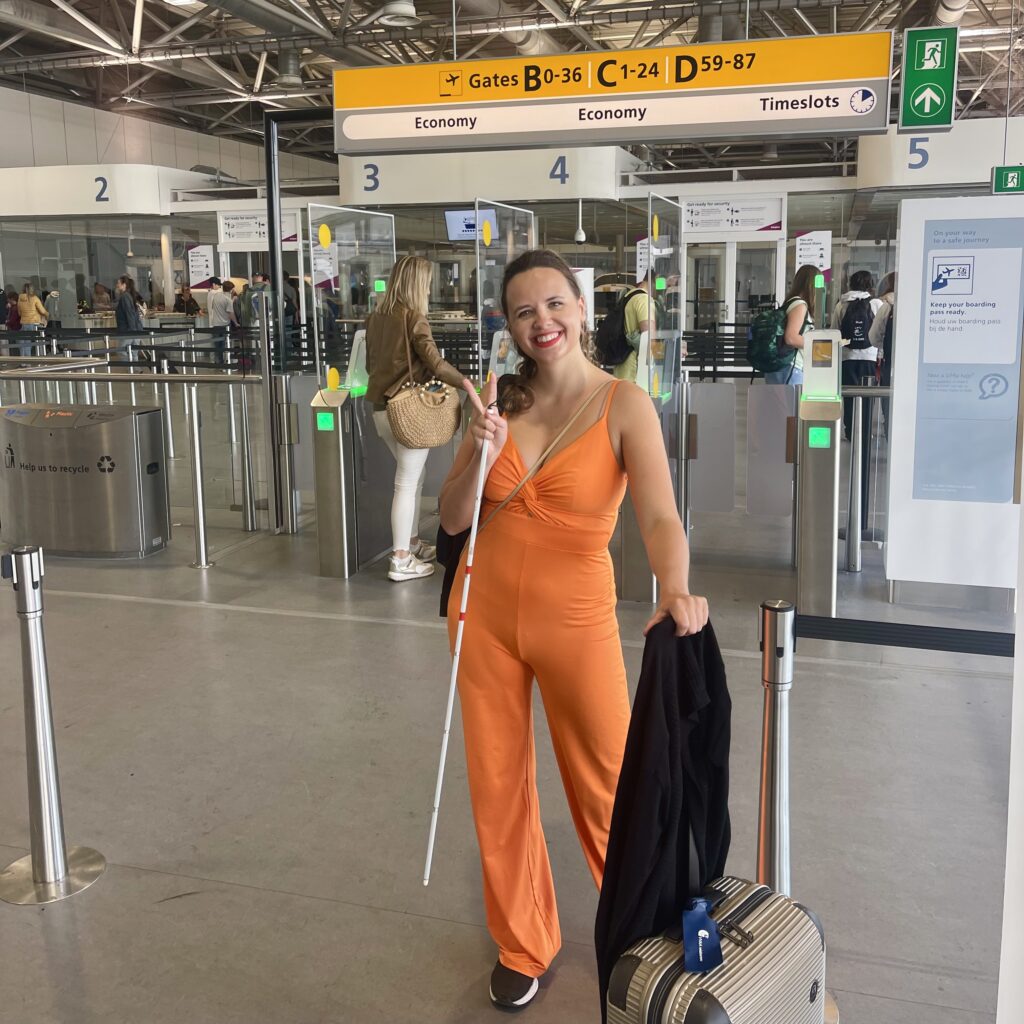
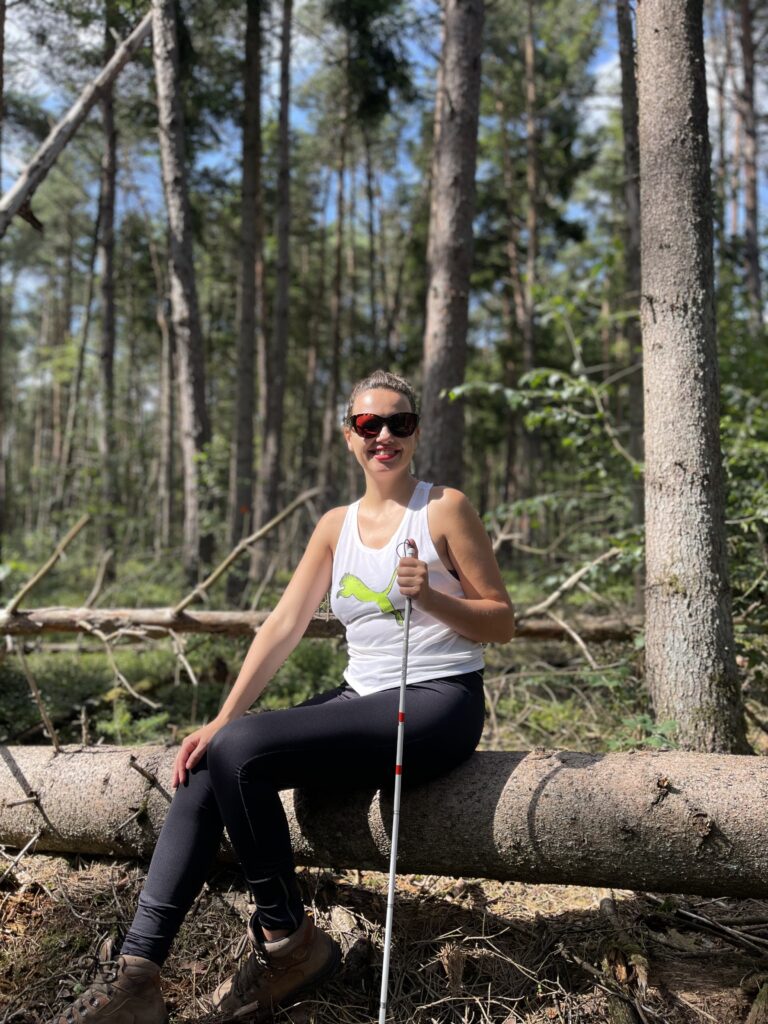
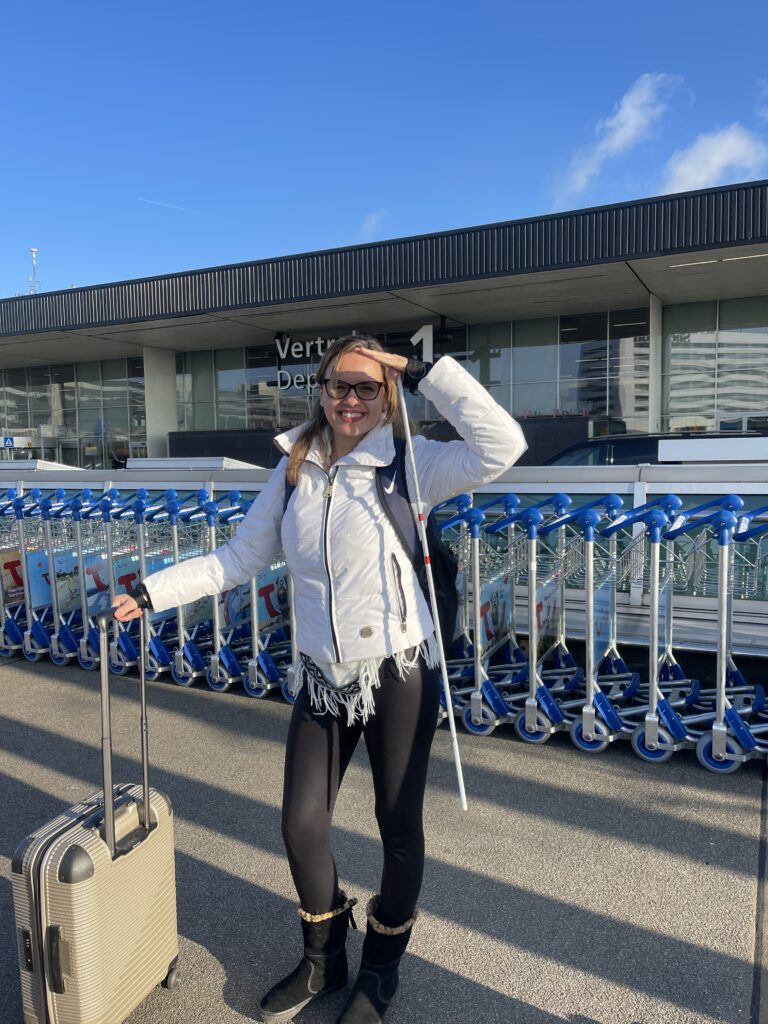
🎒Gear 🎒
Invest in some practical, high-quality assistive gear! Some of my suggestions:
→ A fanny pack: handy, because you can wear it on the front of your body, leaving your hands free (to i.e., hold a cane) and effectively protecting your belongings at the same time.
→ Binoculars: if your vision still allows, buy yourself a quality pair. Yes, these will probably be expensive, but they will (most likely) help optimize your distance vision. The zoom is much sharper than the one on your phone. Plus, they are indispensable if you want to spot some wildlife!
→ A magnifier with built-in light: if only more restaurants had digital menus… but alas… When the font is too small, I’ll either use my phone (zooming in on photos) or a (pocket) magnifier. My current magnifier has two lenses (30x and 45x), but is unfortunately becoming too weak, so I would highly appreciate your recommendations.
→ Packing Cubes: A clever way to keep your suitcase or backpack organized, without having to worry about losing your belongings. You could even tag them with Braille or sort them by color: one for electronics, one for underwear, one for tops, etc. I prefer the compressed version as it saves space in my bag.
→ Disability card: Need I say more? Get those discounts! Many tourist attractions offer reductions upon presentation of verified disability cards (such as the EU one). Even if this category is not specifically mentioned, always ask at the cash register!
🧠 The Right Mentality 🧠
Be sure to respect but gradually challenge your comfort zone! Do you find it scary to travel alone? Start with a destination closer to home! Many people want too much too fast and end up in a situation of panic, shrinking their comfort zones. The slowest road is the quickest road here. Be kind to yourself and proud of every little achievement! Only by patiently expanding your comfort zone will you discover your inner power and resilience. And with that, boy, you can go the distance!
I hope these tips were helpful. And of course, please feel free to DM me if you have questions or in need of a pep talk!
May you set sail, remembering: ‘if I can’t change the direction of the wind, I can adjust my sails to always reach my destination’. ⛵
All the love 🥰,
Marie
